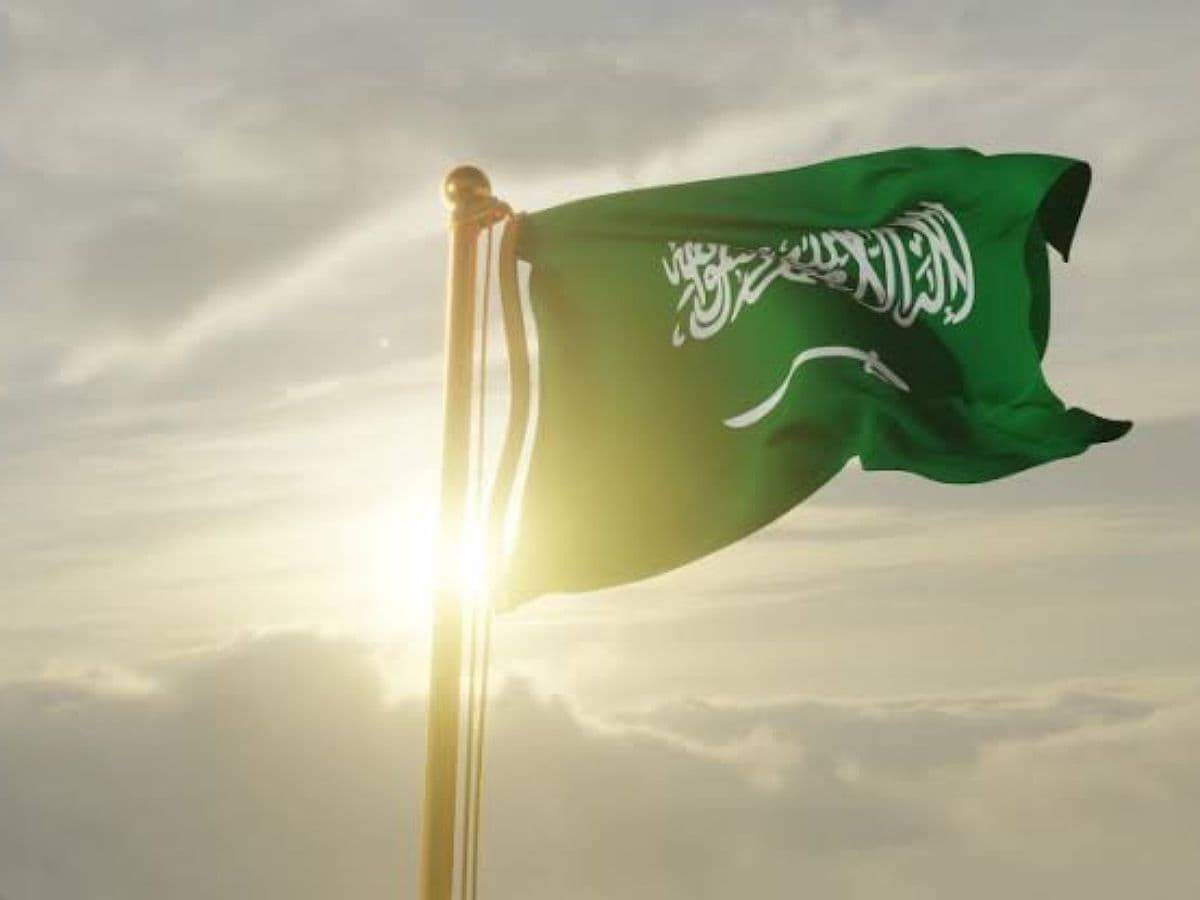
Dubai: Saudi Arabia is inching toward changes that govern its national anthem and green flag, which is emblazoned with a sword and inscribed with Islam’s creed as the birthplace of the faith.
Late on Monday, the kingdom’s unelected consultative Shura Council voted in favour of changes, state-run media reported. It comes as the country’s young crown prince emphasises Saudi nationality and national pride.
While decisions by the council have no bearing on existing laws or structures, the vote is significant because its members are appointed by the king and their decisions often move in lockstep with leadership.
Other state-linked media reported that the changes favour amending the system governing the flag, the slogan and the national anthem, but not its contents. The council has not disclosed further details.
Local media outlets also reported the proposed changes to aim to more clearly define the proper uses of the state emblem, raise awareness about the importance of the flag and anthem and protect the flag from infringement or neglect.
Last week, Saudi police arrested four Bangladeshi men for violating the Saudi flag, which carries the Islamic creed, after they were alleged to have dumped it in the garbage.
The state-run Saudi Press Agency reported only that the Shura Council voted to approve a draft amendment to a nearly 50-year-old royal decree governing the flag. The amendment was proposed by council member Saad al-Otaibi and studied by a subcommittee before it was discussed among council members.
The proposal comes amid rapid reforms that have transformed the once ultraconservative country. With backing from his octogenarian father, King Salman, Crown Prince Mohammed bin Salman has been striving to redefine Saudi identity, supplanting pan-Islamism with a national-cultural identity that is not solely defined by religion.
In one such example, a royal decree was recently issued that marks Feb 22 as Saudi Arabia’s Founding Day. The national holiday is meant to commemorate the 18th-century attempt by Imam Muhammad bin Saud to found the first Saudi state before its demise at the hands of the Ottomans.
Also this week, the government ordered restaurants and coffee shops in Saudi Arabia to rename Arabic coffee as Saudi coffee in the latest effort to raise awareness about a cultural element that expresses the Saudi identity and its traditions, state media reported.
Since 1973, the green Saudi flag has featured the Islamic proclamation of faith in white Arabic calligraphy that states: “There is no god but Allah; Muhammad is the Messenger of Allah. Under those words is a sword.
The kingdom hosts Muslim pilgrims from around the world in the birthplace of Islam in Mecca, where the Prophet Muhammad was born and received the first commandments of the Quran.
In the absence of a free press, state-linked media outlets provided further insights into the Shura Council’s proposal on codes governing the flag and anthem, which will be submitted to King Salman for official consideration.
In Saudi Arabia, there is no local independent media and repression has intensified under the crown prince, according to groups like Reporters Without Borders.
The daily Ashraq Al-Awsat and Sabq news site reported the idea came about as a result of the rapid changes the kingdom has undergone in recent years. Those include changes to existing legislation to support the goals and initiatives of Vision 2030 the crown prince’s ambitious national project to overhaul the Saudi economy and make it more resilient in the face of fluctuating oil prices and sustainable energy.



